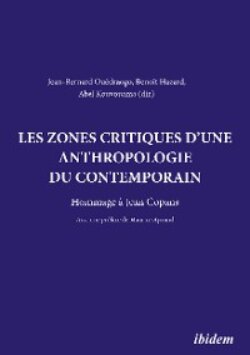Читать книгу Les zones critiques d'une anthropologie du contemporain - Группа авторов - Страница 17
A re-crossed path
ОглавлениеThe original occasion for this essay was a tribute to my distinguished mentor Professor Jean Copans, held at the École des hautes études des sciences sociales in Paris 11–12 June 2019. Professor Copans has written extensively and often on the state of African studies and anthropology in France (Jean Copans 2007 ; 2011). So I thought to try my hand at reflecting on recent developments in our field in South Africa, a country about whose university climate Copans is much concerned. I enjoy as well a personal connection to Professor Copans, one of which I was not aware when I first met him in Cape Town in the late nineteen nineties at the invitation of our now sadly deceased colleague Patrick Harries, a renowned South African Suisse-Francophile and later Professor of African History at Basel. This prior connection was the life work of Professor Copans’ father, Simon “Sim“ Copans: American francophile, musical broadcaster, archivist, scholar, enthusiast, and tireless articulator of the deep interconnections between America, Africa and France in the metier of jazz (Simon Copans 1967).
Sim Copans (1912–2000) was a key matchmaker in France’s love affair with jazz, which blossomed in the post-War period. As an American soldier, Sim Copans landed at Normandy and took part in the liberation of Paris, and then became liaison with French broadcasting following his involvement with the Armed Forces Network and the installation of a station in Rueil-Malmaison outside Paris. Sim enthralled an entire generation with his passion for exposing and promoting jazz in France. He remained in France permanently as an American ambassador of culture: delegate and presenter with the Voice of America (he hosted a retransmission of the Newport Jazz Festival on French radio), head of the Franklin Roosevelt Cultural Centre (later the Benjamin Franklin Library at the American Cultural Centre in Paris), and founder of L’Institut d’études Américaines in 1959, where he also lectured. He was a major force in creating the jazz festival at Souillac, near Lanzac, his home from 1963 and where he died in 2000 (Behrman 1965 ; Moore 2011 ; Pottinger 2009). So it was not then surprising that Professor Jean Copans took an immediate interest in my work as an American anthropologist of the musical genres of southern Africa.
